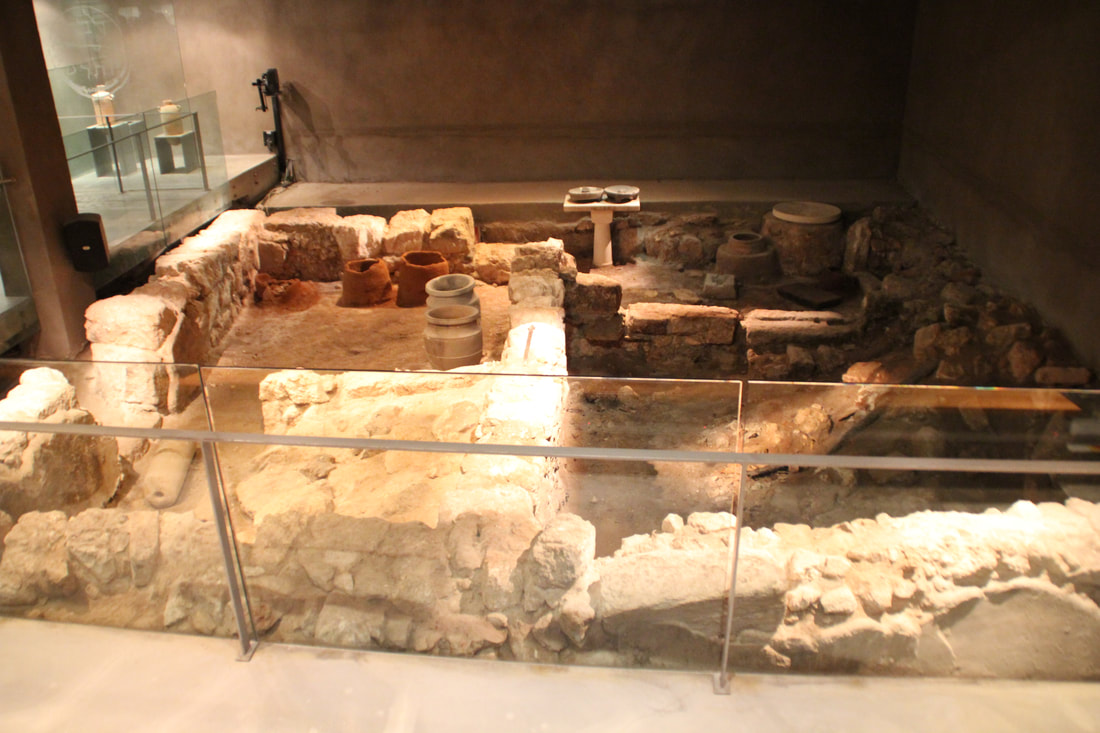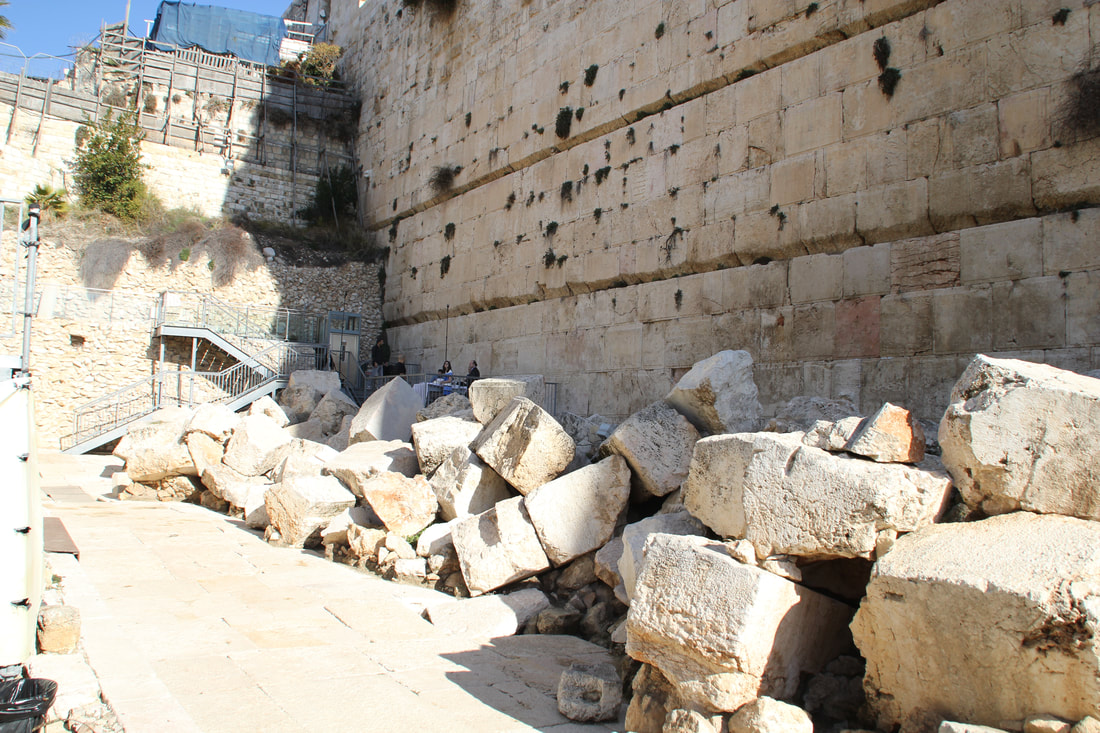|
The first century was a volatile time for the nation of Israel. Rome was hated. Religious institutions had been corrupted. The ordinary people suffered injustices of many kinds.
Jesus came on the scene c.a. 30 AD with a message of forgiveness. Jesus' message is that the path forward to peace is through forgiveness, not violence or hatred of one another (think Zealots). Jesus' message was that "a house divided cannot stand" (Matt. 12:25). One must be able to forgive their brother/sister for any upset that has been caused. Even more than forgiving your fellow Israelite, you must also choose to forgive your enemy and those who persecute you. This was a hard message to accept. In fact, they rejected it.
"The Burnt House" museum in the Jewish Quarter of Jerusalem.
This house was burned by the Roman army in 70 AD.
Over the next forty years, the violence towards and hatred of one another increased in Israel.
In 66 AD. Rome put it's boot down, and a war began. By 70 AD, Jerusalem was under siege. Eventually, under the command of Titus, the Roman army destroyed both God's Temple and the city of Jerusalem. As the Rabbi's reflected back on this period and how God's house could be destroyed a second time, the answer they arrived at was "baseless hatred." "Baseless hatred" - they hated each other for no reason. Join us in this lesson as we compare Jesus' message of forgiveness with the idea of "Baseless Hatred." One can' help but recognize the similarities to the times in which we live today.
To help you with your studies see the lesson plan below:
Listen on SoundCloud
0 Comments
Parables of Jesus (pt. 4)"Woe to the pot!"
This video is the second installment in a two-part series that examines the Parable of the Wicked Tenants (Mark 12:1-12).
In this segment, we will explore Psalm 118:22-24, with a particular focus on the phrase "the stone the builders rejected." We will delve into how Jesus identifies Himself as that very "stone." Furthermore, we will consider a Rabbinic saying that sheds light on a statement found in both Matthew (Matt. 21:44) and Luke (Luke 20:18). The Rabbis express: "If a stone falls on a pot, woe to the pot. If a pot falls on a stone, woe to the pot. Either way, woe to the pot!" If indeed Jesus is this stone, then those upon whom it descends face great peril.
Stones from the Temple Mount thrown down by the Romans in 70 AD.
For more photos of the area known as Robinson's Arch at the Temple Mount in Jerusalem - Jerusalem Robinson's Arch
Listen on Apple Podcasts
Reference Material:
Brad Young, Jesus the Jewish Theologian - has an extended discussion of this parable and the connections to Jewish thought.
|
Teacher Scott Broberg - I have a Masters of Divinity (MDiv) from Bethel Seminary - San Diego - Biblical Studies with and emphasis on the Old Testament. Categories
All
Favorite Websites:
- Ladder of Jacob
- Our Rabbi Jesus - That the World May Know - Early Jewish Writings - Early Christian Writings - Abarim Publications - Hebrew 4 Christians - Holy Land Photos - Biblical Archaeology Society - Ancient Hebrew Research Center - First Fruits of Zion - Jerusalem Perspective - Rabbi Jonathan Sacks - Flavius Josephus.org - Bible Archaeology Report - Hebrew Streams - Biblical Resources Archives
July 2024
|
||||||||||||||||
AddressP.O. Box 50881
Nashville, TN 37205 |
Email
|
|
|
|
Fig Tree Ministries is a 501(c)(3) CA nonprofit dedicated to increasing Biblical education within the body of Christ.
Our ongoing operations are funded through donations from our amazing supporters. Consider supporting Fig Tree Ministries today! |
Connect with us! |



